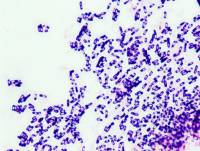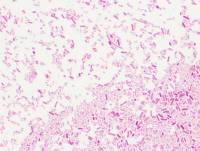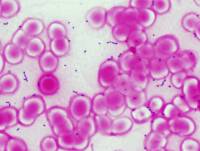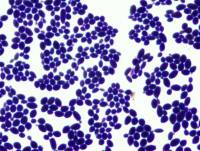Key areas of research
Key area 1: Host-pathogen interactions
Organizer: Fabien ZOULIM
 Infectious agents interact with the infected cells or organism in order to multiply and propagate themselves. These interactions can also result in pathological effects in the affected cells and organs. An understanding of these interactions may be found in studies of infected patients or in experimental models. The profiling of these interactions between the host and the infectious agent using basic and clinical research methods is therefore of key importance in the discovery of new targets for anti-infective drugs, the development of new diagnostic tests and the fight against the pathological consequences of infections. This is one of Finovi's primary objectives.
Infectious agents interact with the infected cells or organism in order to multiply and propagate themselves. These interactions can also result in pathological effects in the affected cells and organs. An understanding of these interactions may be found in studies of infected patients or in experimental models. The profiling of these interactions between the host and the infectious agent using basic and clinical research methods is therefore of key importance in the discovery of new targets for anti-infective drugs, the development of new diagnostic tests and the fight against the pathological consequences of infections. This is one of Finovi's primary objectives.
Key area 2: Vaccinology: immunological basis and technological development
Organizer: Jacqueline MARVEL
 Research included in this key area:
Research included in this key area:
- on the one hand, the study of the various immune response agents potentially involved in controlling a given pathogen
- on the other hand, an approach centered on the development of new tools and research into new molecules designed to target or increase the response of the host to the pathogen.
Key area 3: Structural Biochemistry and therapeutic targets (e.g. Molecular and structural bases for proteins of biomedical interest in the field of infectology)
Organizer: Hugues LORTAT-JACOB
 The “Structural Biochemistry” area is a joint undertaking by the Lyon and Grenoble laboratories, whose work aims at identifying the molecules involved in the entry, replication, assembly, virulence and resistance of infectious agents, as well as their interactions with the molecules of the host cell. This work calls for multidisciplinary approaches using cutting-edge biological, physical and chemical techniques. The resulting knowledge can be used to identify new therapeutic targets, develop diagnostic tools and design and synthesize candidate drugs or vaccination and immunomodulatory strategies.
The “Structural Biochemistry” area is a joint undertaking by the Lyon and Grenoble laboratories, whose work aims at identifying the molecules involved in the entry, replication, assembly, virulence and resistance of infectious agents, as well as their interactions with the molecules of the host cell. This work calls for multidisciplinary approaches using cutting-edge biological, physical and chemical techniques. The resulting knowledge can be used to identify new therapeutic targets, develop diagnostic tools and design and synthesize candidate drugs or vaccination and immunomodulatory strategies.
Key area 4: Epidemiology
Organizer: Philippe VANHEMS
 The epidemiology of transmissible diseases is a topic spanning an enormous subject area, covering both research methodology and the factors involved in the appearance and dynamics of infectious pathologies. These factors depend simultaneously upon the pathogen, the host (human or animal population) and the environment. Epidemiology makes it possible to describe infections and their natural history, to identify risk or protection factors (e.g. vaccines) and to estimate prognoses with or without therapeutic intervention.
The epidemiology of transmissible diseases is a topic spanning an enormous subject area, covering both research methodology and the factors involved in the appearance and dynamics of infectious pathologies. These factors depend simultaneously upon the pathogen, the host (human or animal population) and the environment. Epidemiology makes it possible to describe infections and their natural history, to identify risk or protection factors (e.g. vaccines) and to estimate prognoses with or without therapeutic intervention.
Key area 5: Genetic and protein networks of the host cell or the pathogen
Organizer: Pierre JALINOT
The presence of the pathogen results in the expression of various different molecules, primarily of the protein and nucleic acid variety, which interact and interfere with a wide range of the host's cell factors, thus modifying the normal operation of the genetic and protein networks. A precise understanding of the mechanisms of infection and the associated pathological effects therefore requires a detailed analysis of a wide variety of cell functions. This key area will support molecular and cell biology research covering the effects of the factors expressed by the pathogen, particularly with respect to the following points: - cell architecture and cell-cell interactions, - signal transduction, - replication and expression of the genome and role of chromatin structure, - arrangement of the nucleus, - maturation and export of the various types of RNA, - modifications and metabolism of proteins.
It is anticipated that these studies will produce data which can be used in the therapeutic manipulation of the biology of the host cell with the aim of preventing the replication or the pathogenic effect of the infectious agent.
Key area 6: Modeling and Simulation of biological systems
Organizer: Olivier Gandrillon
Contemporary biology generates data not only in enormous quantities, but also of a new kind, making it possible to analyze complex aspects of biological systems. This leads to highly integrated fields of enquiry calling for the use of methods derived from mathematics, computing and physics, and the introduction of systems biology approaches which incorporate experimentation and modeling within a single virtuous circle.
To achieve this, the aim of the methodology is to provide an effective interface between the various disciplines in question in order to:
- Promote the emergence of themes focused more directly on infectology
- Based on biological questions of interest to FINOVI, to encourage formal sciences to develop new methods of analysis.


